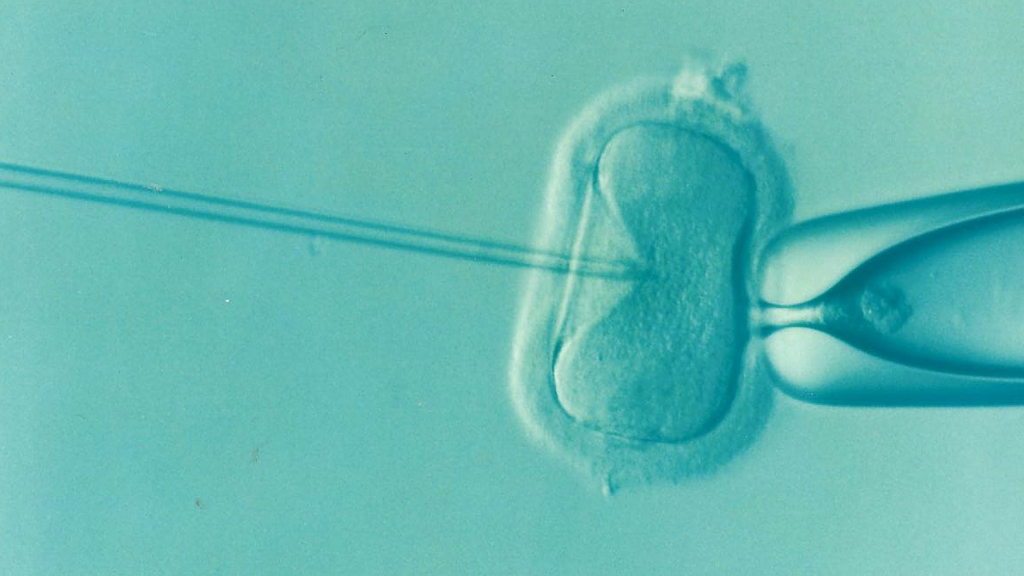
Obesity is like a Rubik’s Cube – complicated and puzzling. But one side we’re gonna focus on today is how it messes with baby-making. As the world’s collective waistline keeps expanding like an overinflated balloon animal, women’s health is taking a bit of a hit.
We’re here to explore the science behind this heavyweight connection, from how extra pounds can throw your hormones into a tizzy, mess with your egg-release party (aka ovulation), and even lead to a condition called PCOS (no, not a new computer operating system).
But don’t worry, it’s not all doom and gloom. This blog isn’t just here to throw shade; it’s here to drop some wisdom bombs. We’re going to shine a light on how you can prevent, manage, and change things up in your life so that you can navigate the tricky path toward better fertility and overall health.
IMPACT OF OBESITY ON WOMEN’S FERTILITY

For those affected by obesity, it is the root cause for a multitude of health abnormalities – and this includes fertility as well. Women in particular are affected by fertility issues more often than not, leading to many physical and mental stressors. Here’s how obesity can impact a woman’s fertility:
- Menstrual Dysfunction: Every month, the menstrual cycle ensures the release of eggs (ovulation) and prepares the womb for implantation. But what if it doesn’t happen? Obesity often leads to irregularities in a woman’s menstrual cycle – and that can heavily impact a woman’s fertility.
- Anovulation: When a hormonal imbalance is caused and subsequently results in irregular or a complete absence of periods, it is called anovulation. An unhealthy amount of weight in women can cause a disruption in the hormone production, thus leading to anovulation and a whole lot of fertility issues.
- PCOS [Polycystic Ovarian Syndrome]: Sometimes, women with PCOS face various challenges, and obesity can make things even more complicated. PCOS, a hormonal disorder that affects many women, can lead to symptoms like irregular periods, excess hair growth, acne, and weight gain. When a woman is also dealing with obesity, it can make managing PCOS even more difficult, potentially making it harder to conceive.
- Metabolic Disturbances: Dealing with extra weight and ovulation problems can mess with your body’s balance, causing stuff like insulin resistance and wonky fat levels. These issues might even set you up for more serious problems down the road, like diabetes and heart issues.
- Psychological Impact: Obesity-related ovulation problems can mess with a woman’s head too. Trying to conceive becomes a rollercoaster of emotions, with stress, anxiety, and even depression thrown into the mix. Dealing with all this can make it even harder to tackle the physical hurdles that come with these disorders.
IMPACT OF OBESITY ON MEN’S FERTILITY

Contrary to popular belief, fertility isn’t just a woman’s problem. There are many cases out there where the ability to have children is hindered by the male partner, and they are a lot more common than you’d think! Obesity in men can also often lead to fertility issues. The National Library of Medicine has further proved this fact, stating that with every 9 kgs that a man puts on, his odds of having a child decrease by 10%!
Surprised? Here are some of the other effects that obesity has on fertility.
- Low Sperm Count: Being seriously overweight can mess with a guy’s swimmers because it messes with his hormones. Dudes who are carrying extra weight often end up with low testosterone and lots of estrogen. This hormonal imbalance can throw a wrench in the works, making it harder for them to make enough little guys – when this happens, dad potential takes a hit.
- Poor Sperm Quality: When a dude packs on too many pounds, it can mess with his hormone balance and tank his swimmers’ quality. Basically, the extra weight can make his man hormone, testosterone, go all wacky and turn into estrogen, the lady hormone. And when there’s too much estrogen in the mix, his boys down there might not be as good at making those little swimmers.
- Erectile Dysfunction: Being too heavy can mess with your performance and cause erectile dysfunction by messing up your blood vessels, dropping your testosterone levels, and making your body all inflamed. It can damage your blood vessels because of stuff like high blood pressure, diabetes, too much cholesterol and triglycerides, and inflammation.
FERTILITY TREATMENTS AND OBESITY

For folks dealing with the weighty issue of obesity, trying to get pregnant through methods like in vitro fertilization (IVF) or intrauterine insemination (IUI) can be a real uphill battle. It turns out that being overweight can seriously throw a wrench in the success rates of these treatments and bring on a whole bunch of potential complications.
With IVF, research is showing that heavier women might have a harder time getting those positive results compared to their slimmer counterparts. This is because of a mix of factors like wonky hormone levels, not-so-great egg quality, and troubles with getting those embryos to stick due to some changes in the uterus caused by the extra weight. On top of that, there’s a bigger chance of miscarriages and some gnarly stuff like gestational diabetes and preeclampsia that often show up for the heavier ladies during fertility treatments. It’s not just a risk for the mom’s health, but also for the little one she’s trying to bring into this world.
In the same boat, heavier folks going for the IUI ride might face a similar set of challenges. It seems like their swimmers might not be as top-notch, and their hormones are doing a bit of a wonky dance. This weight thing messes with their reproductive hormones and how their bodies handle insulin, which doesn’t exactly boost their chances of a successful IUI.
While this all might sound like a total downer, it’s super important for those struggling with obesity to team up with some healthcare pros who know their stuff about fertility treatments. Making some changes to your lifestyle, like keeping your weight in check with some good eats and regular exercise, can really amp up the odds of these treatments doing their job. Getting some support from the fertility pros and working out a treatment plan that’s all about you can give you a better shot at making those dreams of starting a family a reality.
By taking on these challenges head-on and making some smart moves, folks dealing with obesity can up their chances of getting that positive pregnancy test and having a smooth journey to parenthood.
LIFESTYLE FACTORS AND FERTILITY
Having trouble getting pregnant? Your lifestyle choices might be playing a bigger role than you realize. Research shows that things like what you eat, how active you are, and whether you smoke can seriously affect your ability to conceive, especially if weight is a concern.
- Eating Right: Keeping a balanced diet is key for maintaining a healthy weight and supporting fertility. Adding plenty of fruits, veggies, whole grains, and lean proteins to your meals can give your reproductive health a boost. Watch out for too much sugar and processed carbs though. Studies have found that specific eating habits can make a real difference in improving your chances of conceiving.
- Staying Active: Regular exercise isn’t just good for keeping the pounds off, it can also help with your reproductive health. Moderate workouts have been shown to balance your hormones and improve your blood flow, both of which can up your chances of getting pregnant. On the flip side, not getting enough exercise can lead to issues with ovulation and fertility. So, making exercise a regular part of your routine might just give you that extra edge.
- Kicking the Habit: Smoking is a big no-no for both guys and gals trying to have a baby. For women, it can mess with their ovaries and increase the risk of miscarriage, while for men, it can lower the quantity and quality of their swimmers. Quitting smoking is a must if you’re serious about boosting your fertility and keeping your reproductive system in top shape.
So, if you’re struggling with fertility issues tied to being overweight, making some positive changes to your lifestyle could really help. With a healthy diet, regular exercise, and saying goodbye to smoking, you’re taking proactive steps toward increasing your chances of getting pregnant.
The Bottom Line
The whole deal with how obesity can mess with your chances of having a baby really underlines the need to handle this stuff carefully and seriously. If we can get how our lifestyle choices mess with making babies and get that being obese can mess with things like PCOS, we’ve got a better shot at getting things right. Changing up what we eat, getting active, and taking care of ourselves overall can really help up the odds of getting pregnant for folks dealing with obesity.
When it comes to getting help for having a baby, it can be a bit tricky for people who are overweight. But with all the cool medical tech and personalized approaches that are coming up, it’s getting better. Even though it’s not a walk in the park, there are healthcare folks and support groups who are there to help out folks on their journey to having a baby.
In the end, the road to becoming a parent is different for everyone, and we have got to be real understanding about it. Creating a supportive vibe and making sure folks get the right care can give hope and confidence to those struggling with obesity and trying to start a family.
ABOUT THE AUTHOR
Samyukhtha is a healthcare blogger associated with Sudha Fertility Centre, Erode, Tamil Nadu, India.
